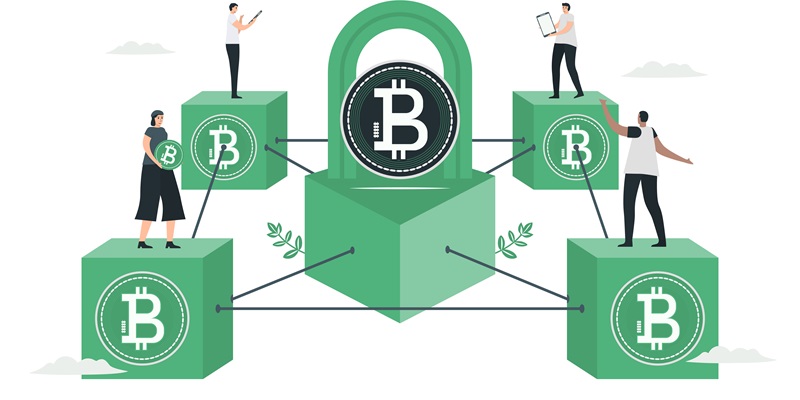Blockchain, a revolutionary technology with the potential to redefine security in financial transactions, is transforming the digital landscape. Its robust security features have emerged as a powerful shield against cyber threats, ensuring the trustworthiness of digital financial systems. This article explores the various aspects that make blockchain a game-changer in the realm of financial transactions, emphasizing its robust security features, advantages, and the need to address concerns to unlock its full potential.
Robust Security Features of Blockchain
Cryptographic Hashes: The use of cryptographic hashes to link blocks ensures the immutability of recorded data. This tamper-resistant ledger provides a solid foundation for secure financial transactions, as altering any data within a block would require changing the entire chain, making manipulation virtually impossible.
Transparency: Blockchain’s emphasis on transparency adds an extra layer of security to financial transactions. Every participant in the network has access to a copy of the distributed ledger, promoting accountability and preventing fraudulent activities.
Decentralization: Decentralization is a cornerstone of blockchain technology. By removing a central authority, financial transactions become more secure. The distributed nature of blockchain enhances security and contributes to the resilience of the financial ecosystem, making it more resistant to attacks and single points of failure.
Consensus Mechanisms: Blockchain employs consensus mechanisms, such as Proof of Work (PoW) or Proof of Stake (PoS), to validate transactions. This ensures that the majority of nodes agree on the accuracy of the information, minimizing the potential for fraudulent activities.
Role of Cryptography: Cryptography is a fundamental aspect of blockchain and plays a pivotal role in securing financial transactions. It enables secure communication, authentication, and encryption, protecting sensitive information and preventing unauthorized access.
Advantages of Integrating Blockchain in Financial Transactions
Enhanced Security: One of the primary advantages of blockchain in financial transactions is its robust security features. The tamper-resistant nature of blockchain significantly reduces the risk of data breaches and fraud, instilling trust among participants.
Smart Contracts: Smart contracts are self-executing contracts with predefined rules recorded on the blockchain. They automate and streamline complex financial transactions, reducing the need for intermediaries. This not only reduces costs but also minimizes the potential for human error, enhancing transaction security.
Reduction of Intermediaries: Traditional financial systems often involve multiple intermediaries, making transactions susceptible to security vulnerabilities. Blockchain technology eliminates the need for intermediaries, reducing the risk of fraud and unauthorized access to sensitive financial information.
Regulatory Considerations
The integration of blockchain in financial transactions raises regulatory concerns regarding privacy, data protection, and compliance. As blockchain technology continues to evolve, regulatory frameworks must adapt to ensure the secure and compliant implementation of blockchain in the financial sector.
Importance of Scalability
As more financial transactions move onto blockchain platforms, scalability becomes crucial. The technology must evolve to handle a high volume of transactions without compromising security and efficiency. Solutions such as layer-2 scaling techniques and the emergence of blockchain interoperability can address scalability challenges and pave the way for widespread adoption.
Blockchain technology has emerged as a disruptive force, enhancing security in financial transactions. Its strong security features, including cryptographic hashes, transparency, decentralization, consensus mechanisms, and cryptography, provide a trustworthy and tamper-resistant foundation. By integrating blockchain, financial transactions can be streamlined through smart contracts, reducing human error and reliance on intermediaries. However, further exploration and collaboration are needed to address regulatory concerns and improve scalability in order to unlock the full potential of blockchain technology in securing financial transactions. Secure financial systems are integral to trust and progress, and blockchain is leading the way towards a future where security is redefined.

